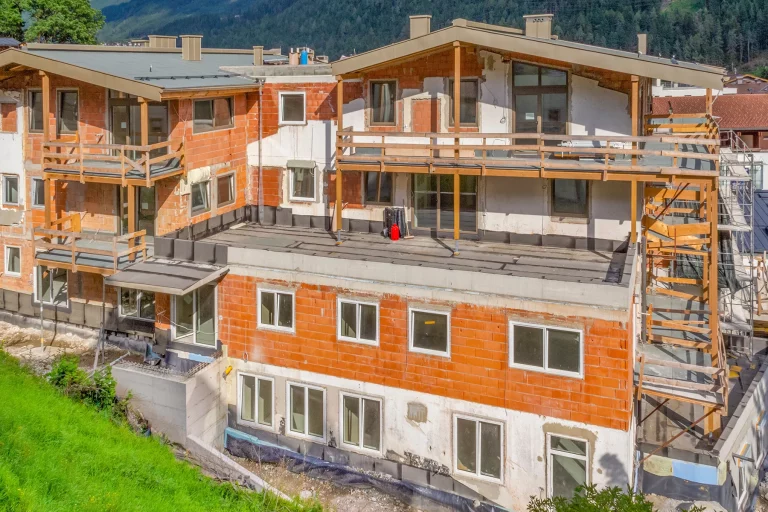Vienna is one of the most beautiful and historic cities in Europe. As a result of its rich history, the city offers some of the most iconic architecture. You will also find that Vienna has a great mix of modern attractions and traditional landmarks that give the city its unique character.
In addition to its natural beauty and comparatively low costs of living, Vienna is home to more than 100 museums, including an opera house that seats over 1,700 people. Vienna also has been named one of Europe’s top eight cities for art lovers by The Times magazine.
Average home prices in Vienna rose by 41% between 2015 and 2021, although they are still well below those in other European capitals like London, Paris, or even neighboring Berlin. For example, one square meter in the Vienna center will cost you about €8,000, while one square meter in London is worth over €14,000.
The same is true with American cities like New York, Los Angeles, and San Diego. The prices there will be about 30% higher — and yet these cities have nothing on Vienna when it comes to comfort!
If you’re looking for an investment that will give you financial security over time and make your life more comfortable, buying real estate in Vienna could be perfect for you. However, buying property in Vienna is a little tricky. In this article, you will learn how foreign buyers can buy real estate in Vienna.
Legislation on Buying Property for Foreigners
Foreigners can buy real estate in Vienna and other provinces of Austria, but there are some restrictions. The process of purchasing an apartment or house in the Austrian capital and other provinces is outlined in the Foreign Nationals’ Property Acquisition Act, a federal law that applies to all nine provinces.
The Act allows non-EU residents to purchase apartments and houses in Austria, but they have to obtain prior approval from their local authorities. This process can take up to six months and requires extensive paperwork and fees paid at the state level and the municipal level.
The responsible Austrian authority watches every real estate transfer closely — especially those involving valuable facilities like hotels and restaurants — and does not allow selling such lucrative pieces unless certain conditions have been met beforehand.
Foreign nationals wanting to acquire property, building rights, or easements in Vienna must obtain a permit from the competent authority. The applicant must prove that their residence in the town would be of economic or social interest to the location. Social interest means that the acquisition satisfies the individual housing needs of the applicant. Economic interest means that the acquisition object is used to establish, expand, or maintain a business.
What Documents Do You Need to Buy a Property in Vienna?
Residents of the country and foreigners with a residence permit or permanent residency can purchase real estate in Vienna. The European Union (EU) and European Economic Area (EEA) citizens also enjoy the same rights as Austrians when it comes to buying properties in Austria. Citizens of EU countries, Switzerland, Iceland, Norway, and Liechtenstein can buy real estate without restrictions. No permission from authorities is required for citizens of those countries.
Non-EU residents can buy property in Vienna only if they have a residence permit in the EU or through an authorization procedure that is subject to the individual state laws governing alien land acquisition like Vienna Alien Land Purchase Act (W-AGWG). Your application for purchasing property will be processed by the Land Commission (Grundverkehrskommission) if you have been granted permission for residence by the Austrian Migration Service (Bundesamt für Fremdenwesen und Asyl).
The applicant must first request and receive information about the land classification. The foreigners must obtain authorization according to the type of land they are purchasing. Then they conclude a contract with the help of a notary and apply to be entered in the land register. Here are the documents necessary for the authorization procedure:
- Request for authorization (application form or informal application);
- Contract or legal title in copy;
- Passport copy;
- Current land registry extract;
- Announcement of the intended purpose of the acquired object;
- Site plan.
You will have to contact the Austrian authority to confirm the full list of requirements. If you apply as a legal entity or by an association, additional documents are required.
Vienna Districts: How to Choose the One?
The city of Vienna is divided into 23 districts, and each of them has its character. If you are sure about buying property in Vienna, you should look at the prices. The most popular areas for buying an apartment are:
- 1st District (Innere Stadt). The average price per square meter is €18,000.
- 3rd District (Landstraße). The average price per square meter is €14000.
- 5th District (Margareten). The average price per square meter is €6,000.
- 19th District (Döbling). The average price per square meter is €12000.
- 22nd District (Donaustadt). The average price per square meter is €8,000.
The average price for an apartment ranges depending on the district area and type of housing unit: new construction or old building renovation project.
There are many different areas in which you can find interesting options for buying and investing at Luxury Immobilien GMBH. Experienced specialists will help you make a choice based on your needs and personal preferences.
Conclusion
If you want a quick profit, the Vienna property is not for you. However, if you are willing to invest long-term and want a stable asset that will appreciate over time, Vienna may be worth your time!

